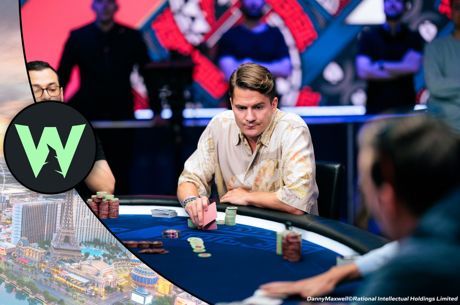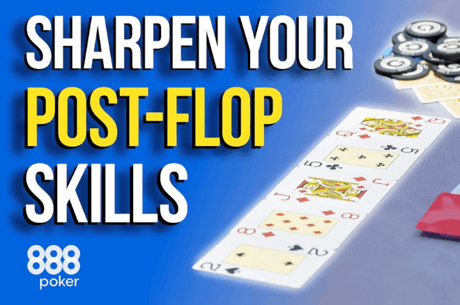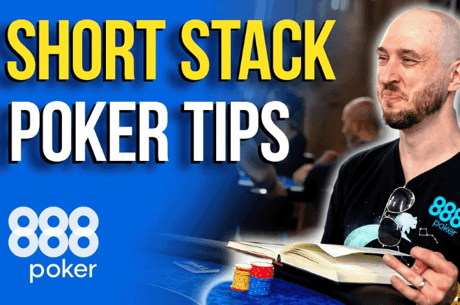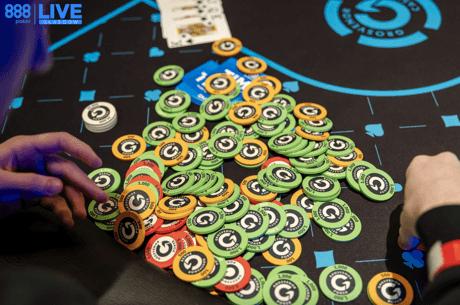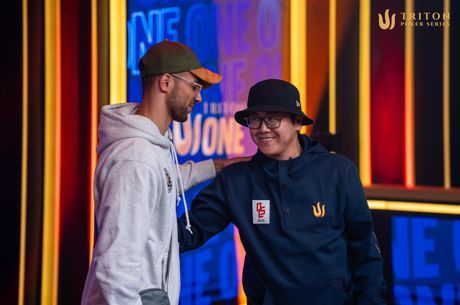Tommy Angelo Presents: Folding to 3-Bets From Behind

What's your position on position? Is it merely a word you know? Or is it something you seek?
I'm a fanatic. This article is about how a positionally obsessed person sees the world — and the flop. We'll look at two preflop situations where I've taken the guesswork out of folding when I'm out of position.
- Folding to a 3-bet after I open
- Folding to a 3-bet after calling an open
Folding After Opening
Full game, $2/$5 no-limit holdem, deep stacks. I open for $20. Someone behind me makes it $70. Everyone else folds and the action is back to me. If I have no pair and no ace, I always fold in this spot.
The size of the 3-bet does not affect my decision. Nor does my opponent's playing style. You'd think my decision to see the flop would depend on my opponent's range, but it doesn't. This is why I can play precisely and leaklessly in this situation. When I get 3-bet from behind, and the pot will be heads-up, my auto-fold range is based only on my cards. I fold everything except for showdown hands.
By showdown hands I mean all pocket pairs, and all hands with an ace. With a showdown hand, I know that if I miss the flop, turn, and river, two happy things can still happen:
- The river goes check-check and I win
- My opponent bluffs and I call
Compare that to my river options when I start with, say, 9-8s out of position, and I don't improve. When the last card comes, I will be first to act with two sad options. I can bluff, and maybe win. Meh. Or I can check, and almost certainly lose. Blech. With 9-high, I lose when they bluff, and I lose when there's a showdown. Blechity blech pattoowee.
I've tasted that rancid river water a million times. But no more. Now when my opponent checks behind on the river, my hole cards alone are always a contender. And that makes me happy. And when I suspect a river bluff, I always have the option to call. That's a favorite thing, too. And it's never not like this. By waiting until I have a showdown hand before I play a 3-bet, heads-up pot out of position, I have achieved eternal happiness.
Important Clarification About Auto-Fold Ranges
When you define an auto-fold range for a given situation, the remaining hands are your "it depends" range. With those hands, you might fold, call, or raise, depending on the usual variables.
When I said that I fold all ace-less, pair-less hands to 3-bets from behind, it does not mean that I stay in with all aces and pairs. For example, if I open with A-5-offsuit in the cutoff and the button 3-bets, I have a showdown hand, yet nothing is automatic. My decision to fold, call, or raise will depend on such diverse elements as the range of the 3-bettor, how they play in general, how I think they think I play, how much beer they've had, how much coffee I've had, and whatever else.
Folding After Calling
Playing $2/$5 NLHE, I was in the hijack with 7-6s. UTG opened for $20. One player called. The cutoff and button were not loose or aggressive, so I called the $20.
The cutoff raised to $100. I put him on a big pair. Everyone folded around to the opener, who called, as did the other player. The stacks were $1,000. The pot was $400. It cost me $80 to call, and I was closing the action.
I folded because I was not going to be last to act after the flop, and I was unlikely to become last.
Let's rewind to the spot where I called $20 before the flop with 7-6-suited in the hijack. How often will both tighties behind me fold? Let's estimate that at 25 percent. When that happens, game over, I win. I'm now last to act with a drawing hand in a single-raised pot. That's as good as it gets, with drawing hands. And it's way better than the only other option, which is to be not-last.
What's the likelihood that one or both players behind me will call the $20? Let's estimate that at 65 percent. This path is far from ideal, since I won't be last to act postflop. But on the flop, if I stay in and the player behind me doesn't, then I will be promoted to last, and that possibility has value.
That leaves 10 percent as our estimate of how often the cutoff or button will 3-bet. When that happens, my strategy is etched in felt. I will fold 7-6-suited to the 3-bet because:
- I'd rather save those chips for later, for when it's my turn to 3-bet in position.
- With the 3-bettor behind me, the chance of being promoted to last-action on the flop is slim, making the whole situation unpalatable.
Not Folding
But give me 2-2 instead of 7-6, and I will eagerly call a deep-stack 3-bet out of position. Because…
- Flopping sets is more fun than flopping draws.
- With a pocket pair, I know I can just close my eyes and ride my starting hand to the finish line if I feel like it.
When I'm out of position and facing a 3-bet, the difference between straighters (hands that can flop a straight) and pocket pairs is huge. I fold the straighters and play the pairs. But on the button, that difference is irrelevant. With sufficiently deep stacks, I call 3-bets with 2-2 and 7-6 (suited or not) equally often.
A Suggestion for Folding to 3-Bets From Behind
If you've played a lot of poker, I assume you have a sense for what the phrase "marginal situation" means to you. When you are facing a 3-bet, and you're out of position, my suggestion is to fold all marginal situations.
Trust your gut. If you feel uncomfortable calling, that's all the reason you need to fold. Your heart and mind are telling you what to do. If you can't trust those guys, who can you trust?

World-class coach and author Tommy Angelo is now offering poker pain relief to everyone. You can schedule a call to talk to Tommy about bad betting, bad quitting, bad tempers, or whatever else is hurting your game. Just go to tommyangelo.com. Angelo's first book, Elements of Poker, was called "the seminal poker text of the 21st century" by The London Times, and it has revolutionized the way serious players approach the game.





